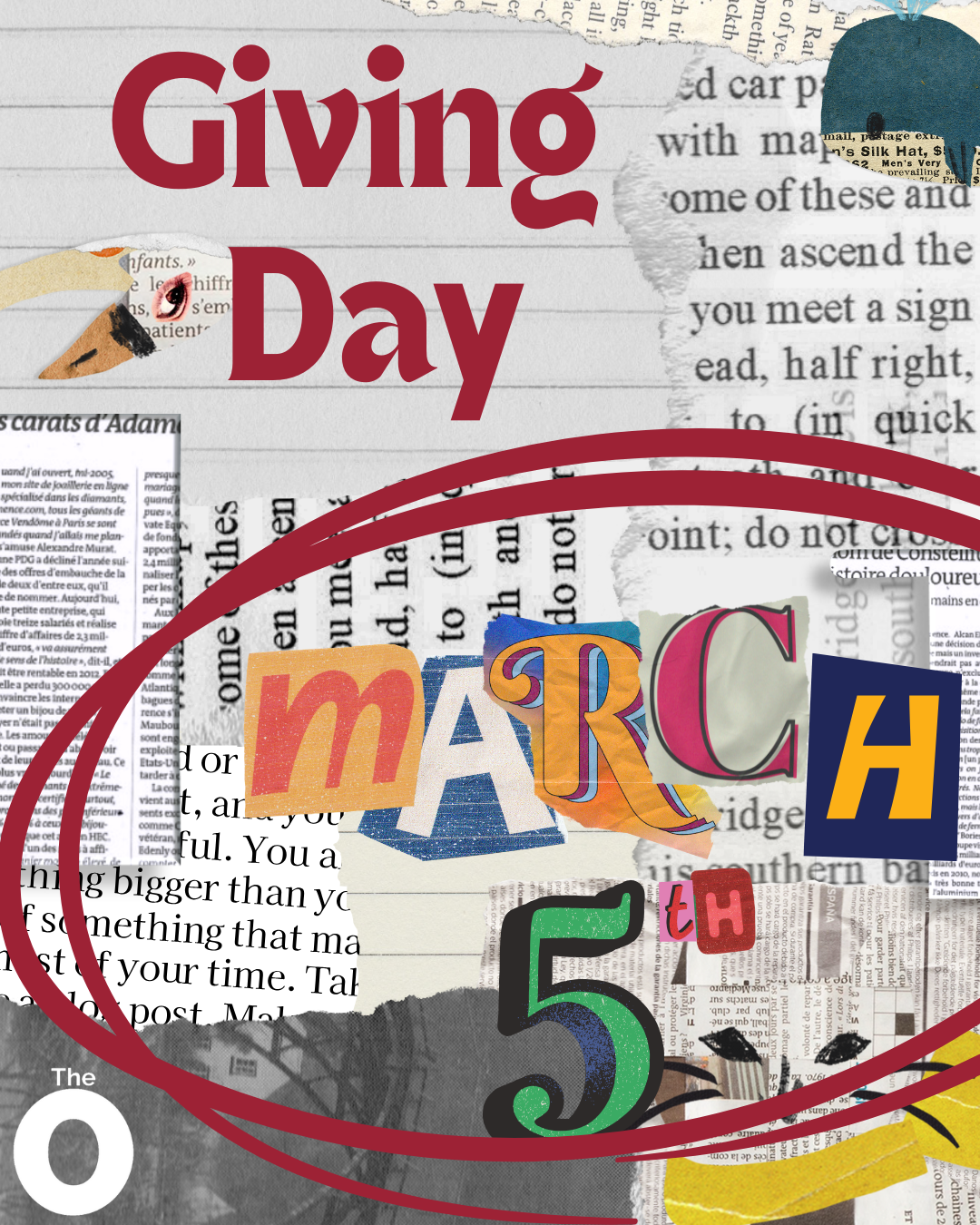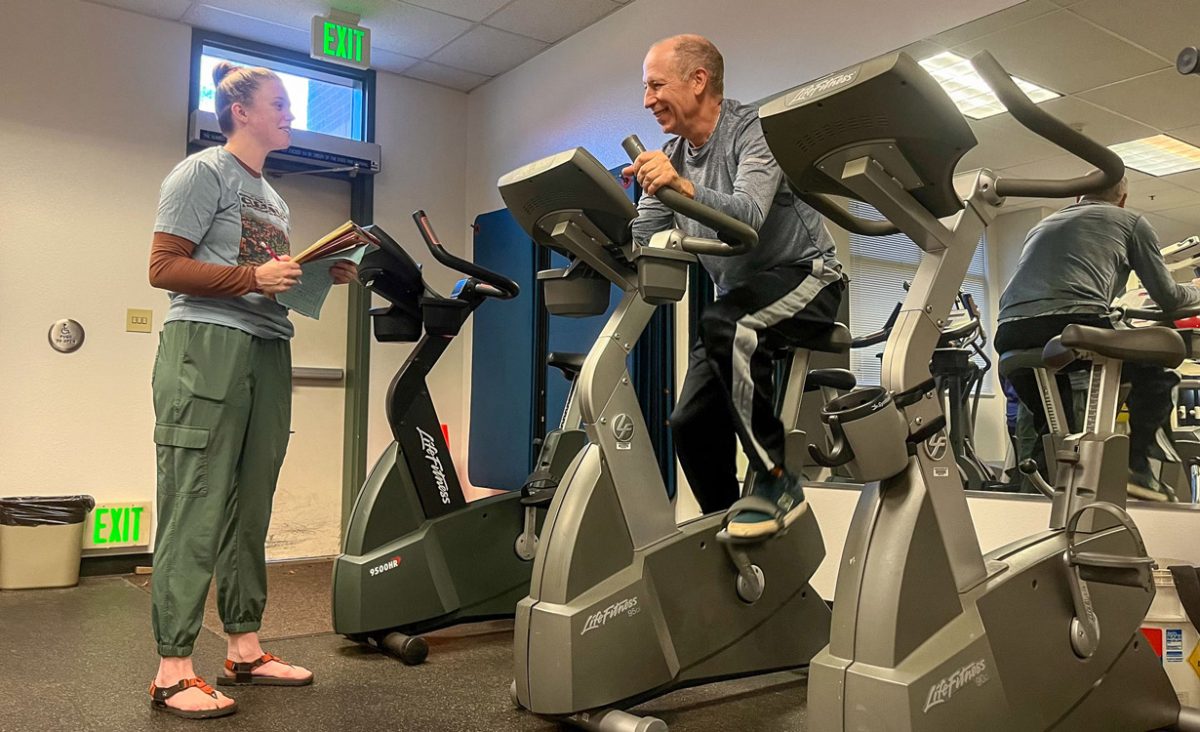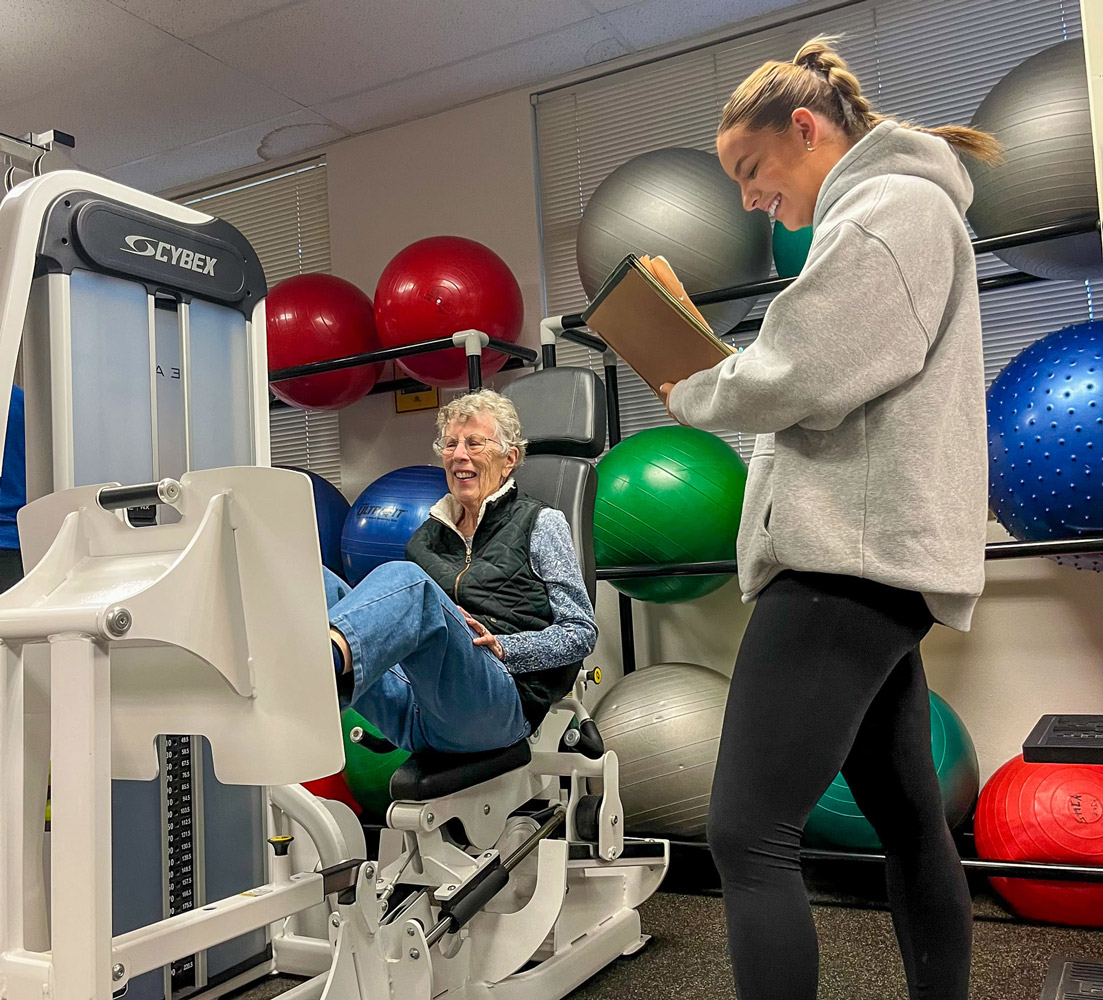It’s Tuesday morning, Chico State students hurry to their classes as professors prepare lectures and grade papers.
Meanwhile, in Shurmer Gym, a different sort of class is taking place. Kinesiology students and faculty gather to set up soccer nets, bowling pins, hockey sticks and parachutes as pop music plays over speakers.
Participants trickle in with smiles, greeting their friends and volunteers. They eagerly grab their colorful name tags decorated with stickers.
The participants range from ages 16 to 50.
Some are assisted in wheelchairs while others use electric ones. Many come walking in with groups, some wearing noise-canceling headphones.
Within the first few minutes of class over 100 people gathered in the gym.
The BE:WEL Program is for individuals with disabilities and provides activities led by kinesiology faculty and students. BE:WEL stands for Beyond Exercise: Wellness Enhancement for Life.
Activities include weight training, stretching and relaxation, lap swimming, water jogging or walking programs, according to Chico State’s website.
The program has been around for over 25 years and focuses not only on physical but also emotional wellness.
Professors who run the program encourage students to interact with participants and practice concepts they’ve learned about in class.
The program provides hands-on experience, said Josephine Blagrave, the associate professor for the department of kinesiology. It’s a huge need in the community, Blagrave said.
BE:WEL focuses on working with physical or occupational therapy patients who may still need assistance and guidance, Blagrave said.
“You’re going to be around people with disabilities,” Blagrave said. “If you don’t have that exposure you’re going to be uncomfortable with it.”
The Monday and Wednesday classes focus on physical exercises and structured workouts. The classes usually work with individuals post-stroke or with spinal cord disabilities.
The Tuesday and Thursday classes are more game and activity-focused and work with individuals with intellectual and developmental disabilities. The classes not only focus on physical movement but also on socializing.
Each class begins and ends with faculty and volunteers gathering participants in a circle to play games around a large rainbow parachute.
During class, participants are encouraged to interact with everyone, often playing catch or group games like soccer and hockey with the assistance of student volunteers.
“Teaching is really important in this department,” Melissa Mache, the Chico State kinesiology department chair, said. “Our faculty is really invested in the success of our students.”
The program is the only of its kind in the Chico State kinesiology department and is primarily focused on working with residents of Chico. It’s a service-learning program, Mache said.
In service-learning programs, students enhance what they have learned in the classroom by volunteering or partaking in service activities.
“It helps our students — it prepares them to go onto their professions,” Mache said. “It sets them apart from their peers.”
Many participants have been coming to the program for years and know the faculty and students well.
The program is mutually beneficial, Mache said. “It benefits people in a variety of ways.” Students are typically either paired one-on-one with a participant or work in groups.
Graduates from the kinesiology department usually end up working in adapted physical education settings or go into occupational or physical therapy.
Annette Zavala is an undergrad student at Chico State studying exercise physiology and this is her second semester in the BE:WEL Program.
Zavala spends Mondays coaching an individual with disabilities, preparing Zavala for her intended career as a physical therapist.
She works individually with the participant, following a prepared workout loosely, and adjusts it as she sees fit, based on their progress and comfort level.
“It is hands-on learning and its providing you with exposure to dealing with situations,” Zavala said. “One thing is knowing concepts and material, the other thing is knowing how to be a personable caregiver.”
Bea Williams can be reached at orionmanagingeditor@gmail.com






